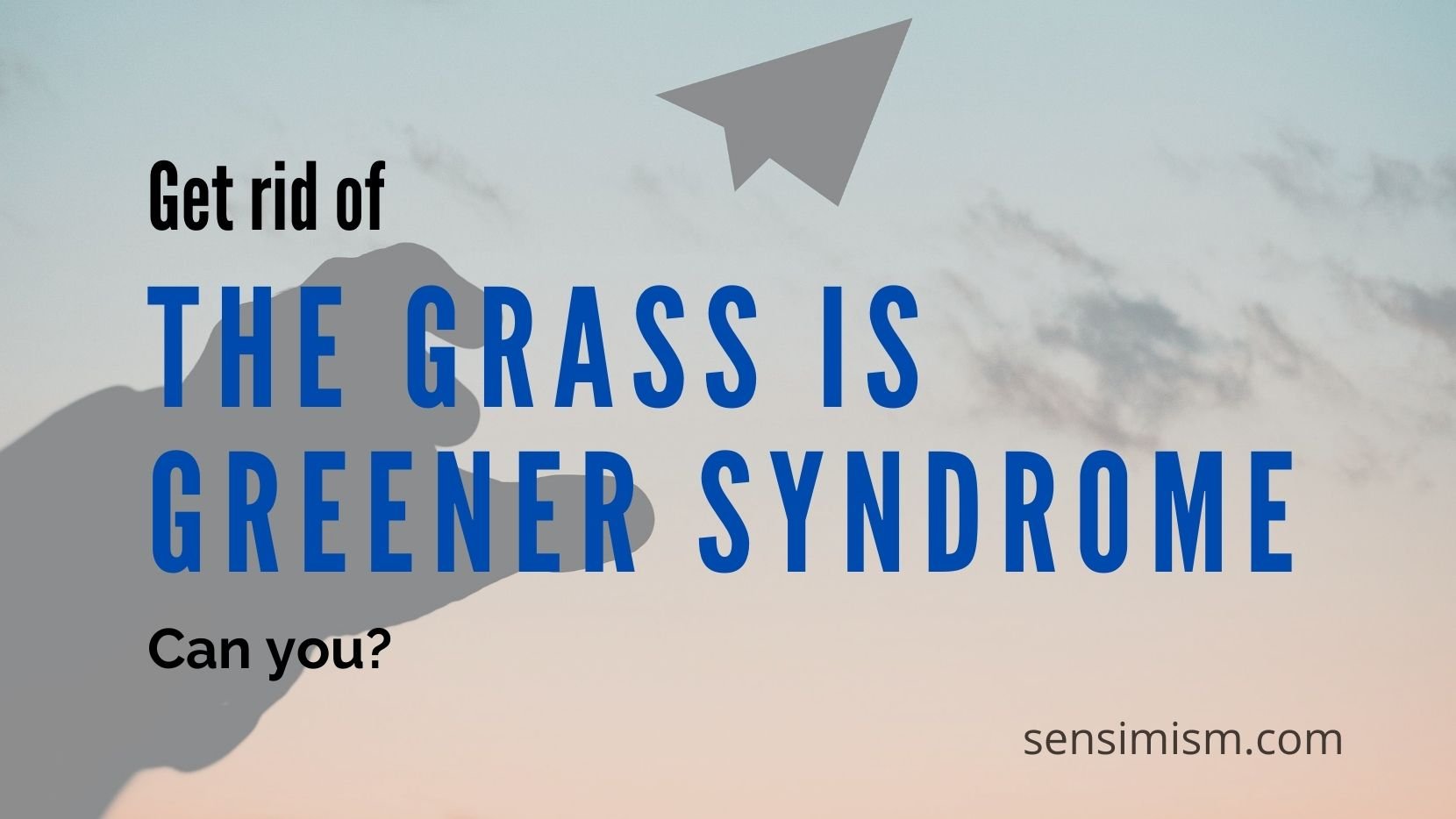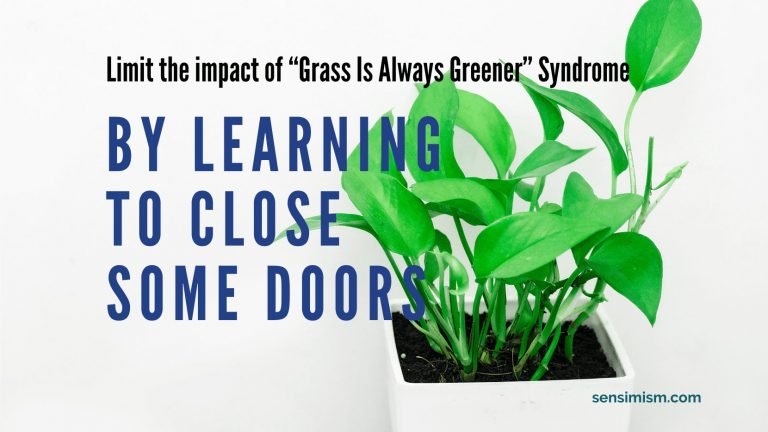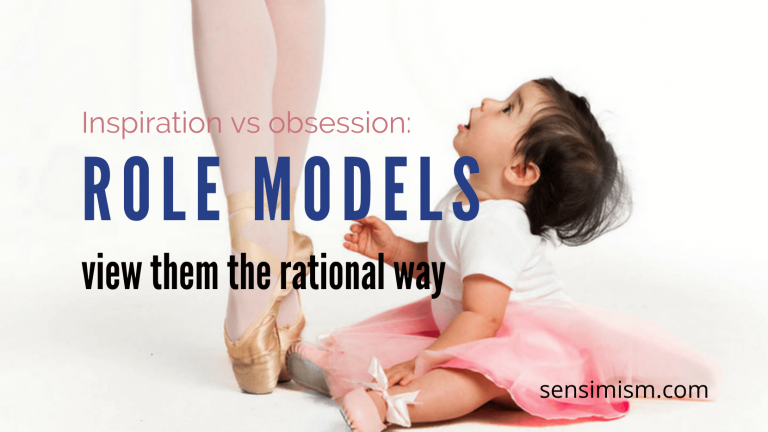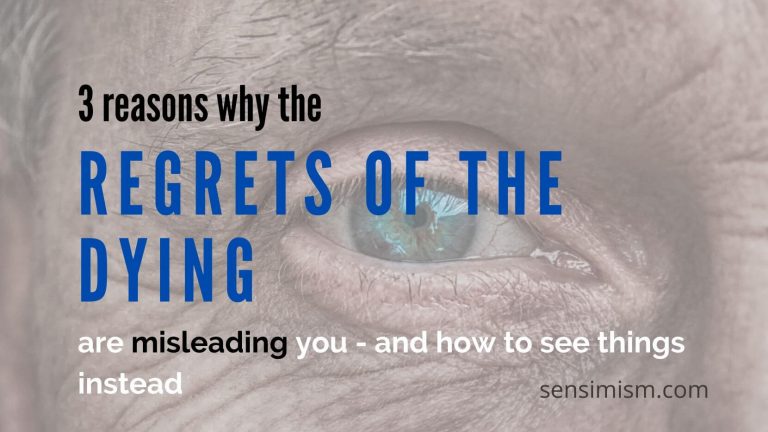Can you get rid of the grass is greener syndrome?
We’ve explored what is the grass is greener syndrome, how to deal with it and what areas of life it impacts. But here’s the million dollar question – can you actually get rid of it? Can you learn or train yourself to overcome the GIG syndrome?
The good news – it is possible to limit the impact of the GIG syndrome on your life.
The bad news – I don’t think you can get rid of it. The science behind its sources won’t budge – the human brain is flawed as it is, and you can’t just train yourself to overcome that. But yes, you can learn how to spot it in action and how to manage it.
The causes of the GIG syndrome and how to handle them
Well, to be precise, the source is singular – your brain. There’s no other source of these nagging thoughts, however, the are various processes in your brain that influence it. Actually, not processes, but fallacies and biases – learned or inherited programs that, if not recognized, can run freely and cause havoc. Let’s go through them and try to identify how to handle each.

Loss aversion
WHAT IS IT: you don’t want to give up on options you think you deserve/have.
THE PROBLEM: in today’s world we are swamped with options. This was useful when food was scarce and we (early humans) were fighting for survival with other species and rough nature. Now, in our comfy chairs and sofas, we no longer have to fight for survival, on top of that, we are inundated with options and examples of what we could do. But the same hunter-gatherer program is there – once you know you can have something, it’s hard to let go.
REAL-LIFE EXAMPLE + HOW TO HANDLE THIS: you always find someone prettier (funnier, more understanding etc) than your partner. You think you could “upgrade”. The program says: why should I settle if I can try and maybe get more. The fallacy: you don’t know the other person, they don’t know you, they probably wouldn’t like you as much, and very likely you would find plenty wrong with them too. You’ll be in the same situation in a few years. Therefore the loss aversion program is misplaced here – you don’t “have” that person (option), so no loss to avoid. The real loss here is losing what you already have – are you prepared to lose all with your current partner and risk that the other person, perhaps with better legs, will not understand you as much? Or he/she will have other, much bigger issues/baggage? Of course, you’re not. This is the real loss aversion. But you lose track of it, because of:
Negativity bias
WHAT IS IT: you lose sight of all the good stuff you have because the bad stuff weighs heavier on your mind.
THE PROBLEM: we have a lot of the good, so even small bad sticks out like an albino penguin.
REAL-LIFE EXAMPLE + HOW TO HANDLE THIS: you can easily think of what’s bugging you about your partner. Or you notice those things on him/her often. But you have to stop and think about the good, how you saw him/her at the beginning when none of the “bad” things actually mattered to you. Consciously focus on the good things, make yourself write them down, compliment him/her on those things. I’m sure you can find plenty. (Or if you can’t, then your problem isn’t GIG syndrome, but more likely being with the wrong person). This is actually a good test – can you think of as many good things about your partner, as the bad? If yes – it’s more likely the GIG syndrome. If you can’t – you’re probably stuck in a bad relationship. Make effort to break the boring routine of everyday life, go out, do things together. Create opportunities to dress up, so you see each other in your fancy wear, not just worn out pants at home.
Hedonic treadmill
WHAT IS IT: however high a goal you set yourself, once you achieve it, it becomes routine and your new average.
THE PROBLEM: Any person you first admire will later become just a normal person. And other people will start to look more attractive. You can substitute <person> and <people> for jobs, cars, computers, locations, social statuses etc.
REAL-LIFE EXAMPLE + HOW TO HANDLE THIS: You fell in love with your partner because of XYZ reasons. You fancied this and that and you found it in him/her. Now, X years later, you somehow feel the XYZ isn’t there or it’s just normal. But hey, look at that other person, how good he/she looks, walks, behaves, jokes, gets you. Remember – you would feel about that person the same soon. And the next one. And the next. How to win this is not through endless searching and trying (giving in to the desire), but learning to control it and investing in your current relationship.
Confirmation bias
WHAT IS IT: the tendency to look for and see the things that confirm our opinion, ignoring the ones that disprove it. Its close cousin is the availability bias/heuristic (you make judgement calls based on whatever information comes to your mind easiest, rather than consciously considering all the possible information that is available to you).
THE PROBLEM: If you look for a problem, you’ll find it. If you give in to the thoughts that your partner (job, car, house, location, situation) isn’t good and you could try for better, you will find plenty of reasons to confirm this opinion. Advice like the above (work on your relationship instead of trying yet another) doesn’t make sense, but feeling bad about yourself and your relationship does – because of confirmation bias.
REAL-LIFE EXAMPLE + HOW TO HANDLE THIS: All the advice you read sounds clever, but just doesn’t feel right. Your situation is different, you can find so many bad things easily, but it takes energy to find and do the good things. Well, this is what a real relationship feels like – it’s hard work. It never stays like the early months, when you find someone and it just clicks. Real life doesn’t just click, it requires a bit of organisation, dealing with issues, different viewpoints, needs, preferences, hell, even positions. Remember this when you are hit by harder times – life is a balance of the good and bad – it can’t be just the good. It will even itself out.
When it comes to the availability heuristic – every time you make a quick decision about what you don’t like – stop and make yourself consider all the things that didn’t come to your mind straight away. Ofter, they will disprove your initial analysis, or at least make it less troubling – and your GIG syndrome much weaker.
And let’s not forget a close relative to grass is always greener:
FOMO (fear of missing out)
WHAT IS IT: “all this cool stuff everyone else is doing, I want to do that too! The beach photos, the travelling, the six-pack, the moneymaking! If they can do it, I can!”.
THE PROBLEM: We take many things that other, random people do and think we, as an individual can do them too. We also ignore how different those people are from us, their circumstances, where they were born, who they know. And we forget that this feeling (fear of missing out) won’t go away once we change the situation – we achieve a certain milestone.
REAL-LIFE EXAMPLE + HOW TO HANDLE THIS: You work in an ok job, but get inspired and fancy travelling and working for yourself. You quit and achieve that – you can travel and work from anywhere. But in this new situation, your fallacies and biases are still the same, so the beach pictures aren’t enough – now you crave the beach pictures whilst rescuing turtles and working online with one hand. FOMO never ends, so learn to close some doors and shun opportunities. It’s good to set yourself goals that move you forward and make you better. But know your limits, accept you can’t have it all and that life is about compromises.
Conclusion
You probably noticed a theme here – the fallacies and biases will always be there. You can’t turn them off. But you can learn to recognize them and act – do something about them before they grab hold of your thoughts or actions.
This is key – having certain thoughts is unavoidable – including the GIG syndrome. But recognising them, consciously watching and scrutinizing them and choosing your own – rational – response and action will help you limit the impact of the syndrome on your life.
The unfortunate thing is that this requires a good dose of willpower. And we know that exercising your willpower on one thing tires it out (just like a muscle), so you will have less willpower on other things.
At the same time – exercising your willpower makes you better at using it. So keep practicing, keep learning how to recognise the triggers of the grass is greener syndrome – and how to manage them. You will get better at it, trust me, it took me years but it gets easier and easier.





